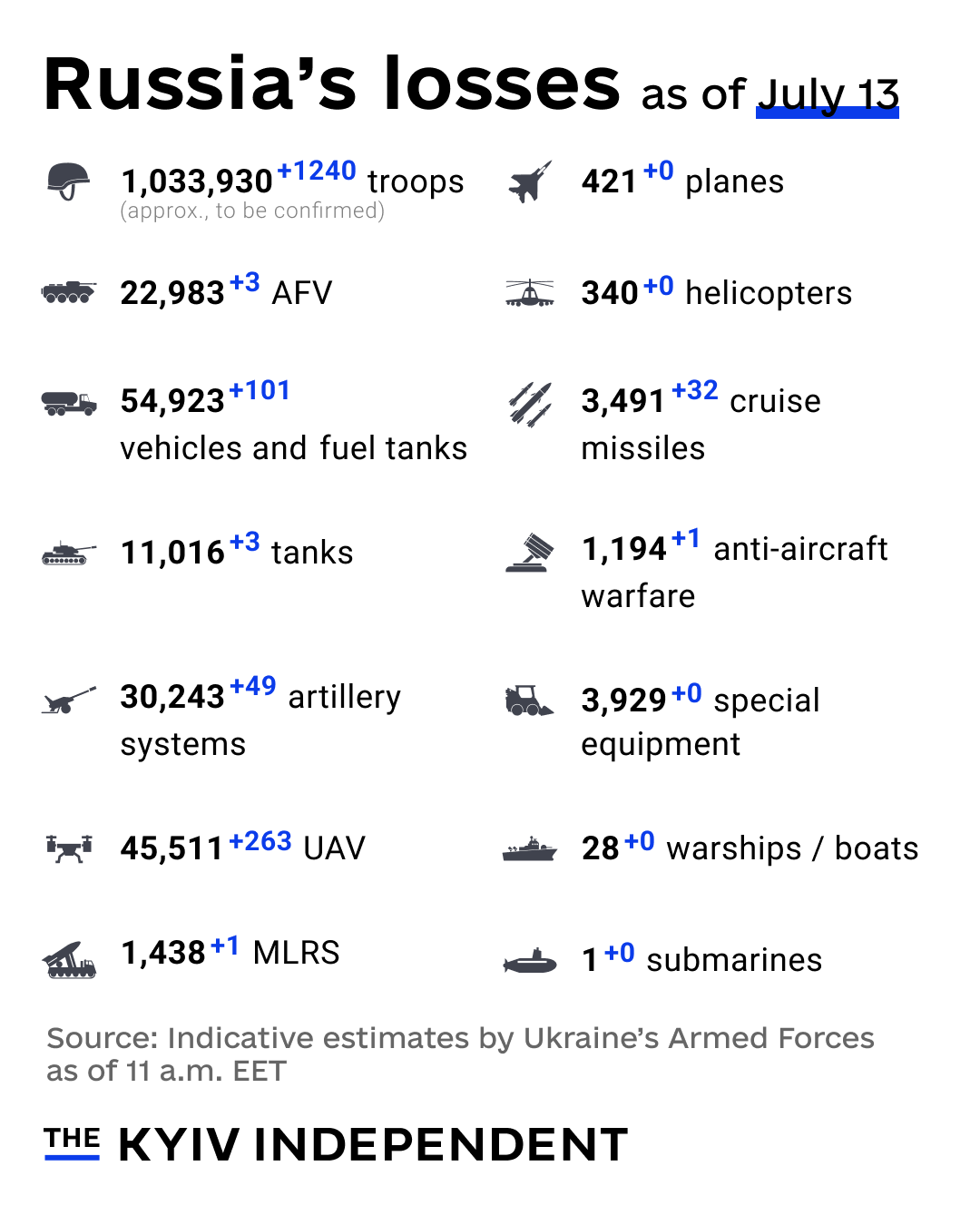The Trump administration’s murder of Voice of America has given Russia and China a void into which they can pour disinformation. VOA—a federally funded broadcasting network that provides reporting in countries where freedom of the press isn’t a thing—was sliced and diced and then mostly eliminated. The VOA parent company, US Agency for Global Media, has essentially been reduced by 85 percent, with 250 employees remaining at the entire agency—close to the statutory minimum—with roughly 200 of those remaining at VOA.
China and Russia are celebrating.
“Today is a celebration for my colleagues at RT, Sputnik, and other outlets, because Trump unexpectedly announced that he’s closing down Radio Liberty and Voice of America, and now they’re closed. This is an awesome decision,” —Margarita Simonyan, head of RT
Russia wasn’t the only one welcoming the gutting of critical information that otherwise could not be obtained by audiences in countries with limited press freedoms.
Hu Xijin, a former editor in chief of China’s state-run outlet Global Times, wrote that the paralysis of Voice of America and Radio Free Asia was “really gratifying” and, he hoped, “irreversible.” A top aide to Prime Minister Viktor Orban of Hungary posted that he “couldn’t be happier” about the administration’s move in February to gut the agency that distributed foreign media funding. Officials in Cambodia and Cuba also welcomed the cuts.
The death of VOA is allowing these countries to step in and deliver disinformation to a wider global audience, increasing their influence and helping restructure these countries’ governments and foreign policies.
Nature abhors a vacuum, and since VOA is no longer helping amplify voices of freedom, as it did upon its creation to counteract Nazi propaganda in the 1940s, autocratic states like China, Russia, and others are more than happy to fill that hole.
Besides, using soft power, such as the media, to usher in autocrat-friendly politicians and increase support for them, is a lot less expensive than spending billions on building up militaries.
Lower cost - better results for the adversaries.
Media reports indicate that Russia’s budget for this year allocated about $1.42 billion for state propaganda—certainly much less than the roughly $145 billion allocated for Russia’s “defense” budget. And that’s just the number that’s public.
While Russia has been fighting its full-scale war in Ukraine for more than three years, suffering more than a million casualties, losing thousands of UAS, tanks, and other military materiel, and suffering significant economic damage, its media outreach and disinformation efforts have cost significantly less and have yielded better results.
The EU after Russia’s full-scale invasion of Ukraine began finally recognized that the fight against Russian disinformation should be a top priority.
Russia is almost certainly staging hybrid attacks, including disinformation, to grab control of Moldova, prompting the EU this month to pledge to help defend Moldova against Russian efforts to defeat the pro-European government of President Maia Sandu by installing pro-Russian Socialist Party candidates in the September parliamentary elections.
Czechia last year uncovered a Russian propaganda network that used the Prague-based Voice of Europe news site to spread information seeking to discourage the EU from sending aid to Ukraine.
France last year uncovered 193 fake news websites targeting both Ukraine and European countries, including France, Germany and Poland. Thankfully, their reach appears to be limited to the usual suspects on social media sharing Russian disinformation and conspiracy theories.
Moscow has used unwitting US podcasters and witting US media company TENET to spread Russian propaganda in the United States. TENET never disclosed to its viewers that it was receiving funds and direction from Russia’s RT, or any other Russian entity, according to the indictment. Nor did the company or its founders register as foreign agents, as required by US law.
As I wrote previously, Russian propaganda is nothing new. According to the Marshall Center, aktivnye meropriyatiya or “active measures,” was a phrase used by the USSR during the Cold War to describe political influence and subversion operations, including support for friendly political movements and fomenting of unrest using propaganda and dis- and misinformation efforts. These active measures still exist - adapted to modern technologies and means to disseminate disinformation.
These methodologies become a lot more effective if:
A willing audience exists whose biases the disinformation confirms, and
No effective alternative exists to counter the propaganda.
Luckily, here in the United States, we have any number of alternatives the populace can access to get at the truth, as long as people exercise a modicum of caution and critical thinking when examining the information. But at least we have options and opportunities to corroborate what we see, hear, and read.
In countries where little or no alternative to disinformation exists, tyrannical regimes are free to disseminate propaganda friendly to them, foment unrest, and ultimately foster change in Putin’s favor.
Kremlin-backed Sputnik media outlet in February opened an office in Ethiopia and planned more in South Africa and possibly Tanzania, according to the New York Times. Sputnik is also in India and offers websites in more than 30 different languages. It was banned in the EU, along with RT, after Russia began its full-scale invasion of Ukraine.
VOA in Africa alone provided services in local languages including Swahili, Afaan Oromoo, Kinyarwanda, Somali and Tigrigna, allowing the network to reach audiences in countries such as Eritrea, Somalia, and Rwanda. What will happen to those 93 million people in Sub-Saharan Africa who were given an information choice by the existence of VOA? They will probably begin consuming Kremlin propaganda, along with Chinese mis- and disinformation.
China last year already began training journalists in Africa to disseminate Beijing’s propaganda. We probably would not have learned about these efforts without reporting from Radio Free Asia - another media outlet whose funding was eliminated in March. “The move is part of a bid to ensure the Chinese Communist Party line is clearly heard across the continent, analysts say.”
It’s already happening.
UK think tank, the Royal United Services Institute (RUSI) last year reported that Russia is using its state-controlled media channels to spread its propaganda narratives to millions of people, from false stories about biolabs in Ukraine to trying to present the conflict as a Russian fight against “Western imperialism.”
…there are now unprecedented levels of support for Russia in a number of African states, as evidenced by calls from citizens in Burkina Faso for a Russian intervention in the country, or calls to replace former ties with France with a partnership with Russia in Niger. As evidence of Russia’s growing status in Africa and the effectiveness of its information efforts, in March 2022, 26 African countries refused to support a UN resolution condemning the Russian invasion of Ukraine.
It was happening in Syria too, until Bashar al-Assad’s regime was toppled and the dictator fled to Russia to escape responsibility for his abuses.
Mainly due to its presence in Syria, it has been investing in building platforms targeting Arabic-speaking audiences for a number of years, and it has actively used disinformation to promote its own interests and those of its allies. For example, it launched disinformation campaigns aimed at deflecting responsibility for chemical attacks in Syria from the Syrian regime and blaming them on the West or non-governmental organisations instead. RT Arabic, the Arab-language branch of the notorious Russian state-owned TV channel, has one of the most popular news sites in the region and a significant online presence.
It’s happening in our backyard as well. The US State Department in late 2023 flagged that Russia was funding a “well-funded disinformation campaign across Latin America, with efforts to manipulate the information environment in Argentina, Bolivia, Chile, Colombia, Cuba, Mexico, Venezuela, Brazil, Ecuador, Panama, Paraguay, Peru and Uruguay, among other countries in Latin America.”
VOA last October reported that Spamouflage social media operation networks connected to China were posting antisemitic conspiracy theories on social media, including about alleged Jewish influence on the US government and the integrity of both US presidential candidates. US intelligence agencies last September also highlighted that Russia, Iran and China remain the primary external forces attempting to influence US voters ahead of last year’s presidential election.
In other words, this is a bad time to shut down voices that can provide well researched, well written, truthful reporting in countries where such information is limited. It’s also a bad time to destroy relatively inexpensive information operation methods that can help the United States remain a voice of stability, integrity, and liberty in jurisdictions where the only voices heard are autocratic despots.
The lack of America’s voice and perspectives leaves a massive vacuum that Russia and China are only too happy to fill.
Nature abhors a vacuum.





